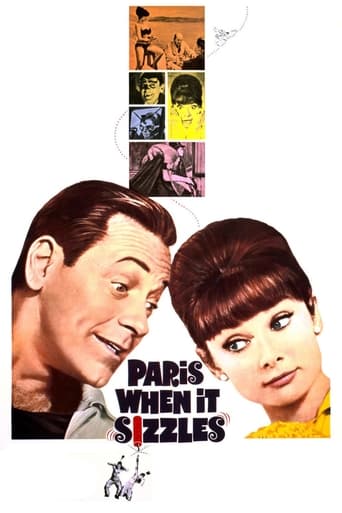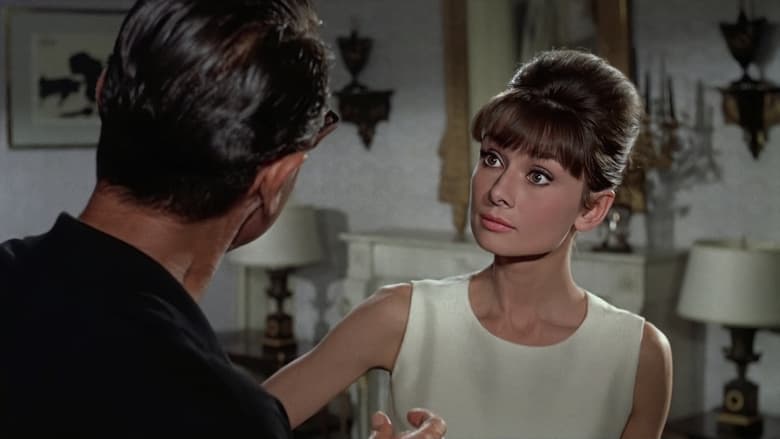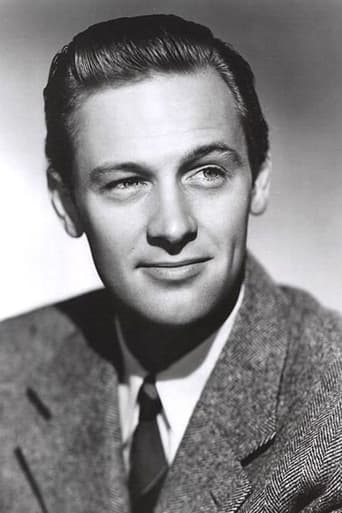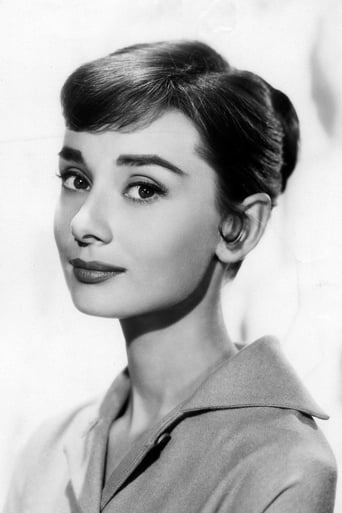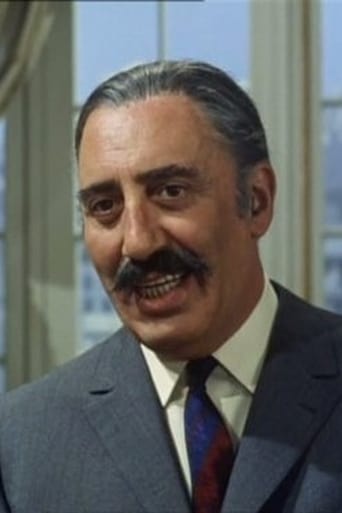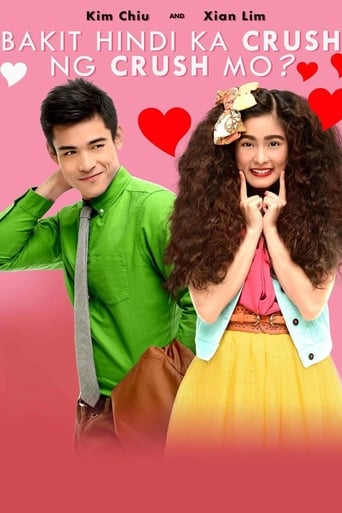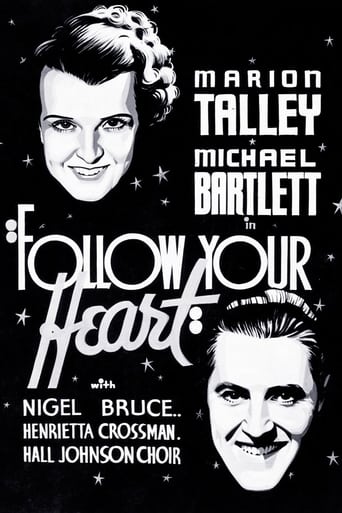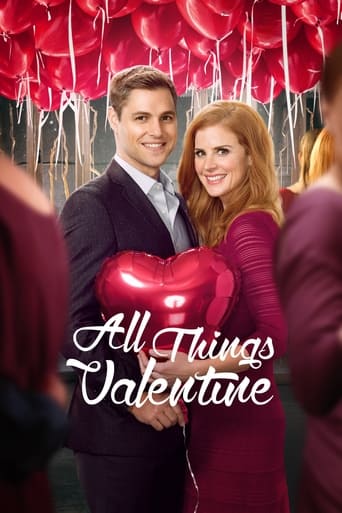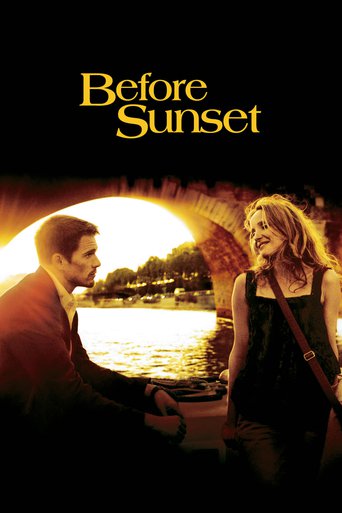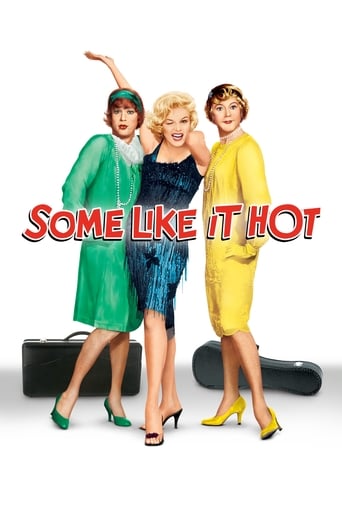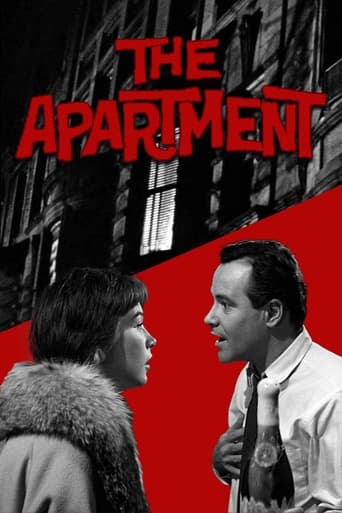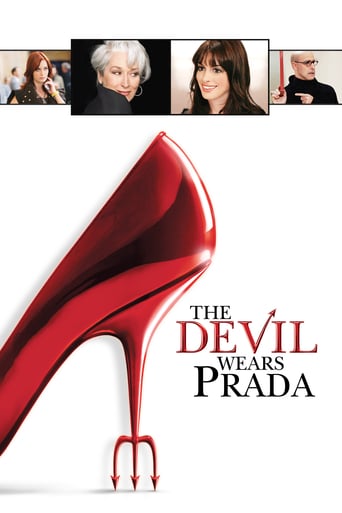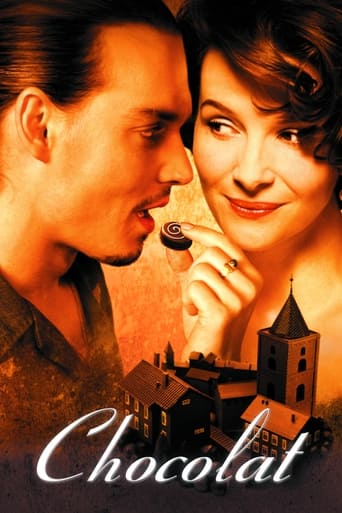Paris When It Sizzles (1964)
Hollywood producer Alexander Meyerheimer has hired drunken writer Richard Benson to write his latest movie. Benson has been holed up in a Paris apartment supposedly working on the script for months, but instead has spent the time living it up. Benson now has just two days to the deadline and thus hires a temporary secretary, Gabrielle Simpson, to help him complete it in time.
Watch Trailer
Cast


Similar titles
Reviews
In 1964, Audrey Hepburn and William Holden were among the very top movie stars in the world. Because of this and their excellent track records, you would expect "Paris When It Sizzles" to be a very good if not a great film. Well, this would be a mistake, as even though the film featured these two likable and bankable stars, it's a terrible movie--a complete misfire and a waste of their talents as well as Tony Curtis' and Mel Ferrer's (Hepburn's husband at the time)--who appear in a few short cameos. I have no idea if the film lost money, though I am pretty sure it must have. It also, according to IMDb, was Audrey Hepburn's least favorite among her films.William Holden plays an alcoholic* playboy who occasionally takes time off from this busy schedule to write a film here or there. He's been under the gun to stop his partying and get to work when he hires a new secretary (Audrey Hepburn). Most of the rest of the picture consists of the pair talking out the plot to a particularly stupid film. And, as they talk, you see the pair acting out the film as if they are the stars. You also see that despite Holden's best efforts, they fall in love."Paris When It Sizzles" sure has the look of a vanity project. The film is way too cute and self-aware. And, if he love the joke or are a die-hard Hepburn fan (and there are some who simply cannot accept that this actress EVER made a bad film), then you'll probably like the film. But the end results are not particularly convincing and the film that the pair talk about throughout the film is just plain stupid. Overall, the film comes off as boring inside joke.*This is a sad case of art imitating life, as Holden was rather notorious for his heavy drinking that appears to have helped put him in an early grave. This seems to a rather bad inside joke--referring to his drinking problems (which, according to IMDb, were severe enough to force him into rehab just before the actual filming was complete).
In the fifties and sixties there was a general view in Hollywood that Paris was the city of love, romance, culture and Audrey Hepburn. By 1964 the Divine Audrey had already made four films wholly or partly set in the French capital ("Sabrina", "Love in the Afternoon", "Funny Face" and "Charade") and was to make one more in 1966, "How to Steal a Million". If by chance she was unavailable to make a Parisian comedy, Hollywood generally turned to the nearest thing it had to a Hepburn lookalike, Leslie Caron, to stand in for her. ("An American in Paris", "Lili"). When, therefore, someone had the idea of making a film called "Paris When It Sizzles", Audrey was the obvious choice for the female lead.Like most of Audrey's Parisian films this one is, officially, a romantic comedy, although in many ways it defies categorisation. The two main characters are Richard Benson, a screenwriter, and Gabrielle Simpson, his secretary, who is helping him to type the script to for his latest screenplay, "The Girl Who Stole the Eiffel Tower". As Richard discusses various scenarios with Gabrielle, the two start to act them out in what develops into a film-within-a-film. Richard is never clear exactly what sort of film "The Girl Who Stole the Eiffel Tower" is supposed to be; it is part rom-com, part spy thriller, part crime drama, and occasionally seems to be turning into a vampire horror story or a war film. Its main feature, however, is that it revolves around the romance between its two main characters, Rick and Gaby, which parallels the romance which is growing up between Richard and Gabrielle.Neither Audrey nor the male lead, William Holden, was particularly enthusiastic about doing this film, with good reason. Some ten years earlier they had made another film together, "Sabrina", and had by all accounts become very friendly on set. Whether that friendship was a sexual one or not depends upon which biography you read, but it appears to have ended less than happily. Following this experience they were not keen to work together again, but the studio insisted on their making the film. The unhappy ending to their earlier romance did not prevent Holden from trying to rekindle it on the set of "Paris When It Sizzles", only to find himself rebuffed by Hepburn, by now married to Mel Ferrer. Another problem was that Holden, an alcoholic, was drinking heavily while making the film.Given the troubled history of the two stars, there is more personal chemistry between them than one might expect. Audrey- as vivacious, glamorous and sexy as ever- is particularly charming. Holden and Hepburn dominate the film- no other actor has more than a cameo part. Tony Curtis appears as a policeman, and Noël Coward as a film producer with the oddly Germanic name of Alexander Meyerheim given that Coward plays him, as he played every part, as an upper-class Englishman. In one scene Coward, who was gay in real life, comes close to outing himself when he calls Holden "beautiful" and kisses him.A feature of the film is that it makes reference to previous Hepburn films. When Richard says that he sees Gaby as a "prostitute with a heart of gold", that is an allusion to Hepburn's character Holly Golightly in Breakfast at Tiffany's, and a scene in which a gun turns out to be a cigarette lighter may be a reference to the opening scene of "Charade" in which a gun turns out to be a water pistol. (Some of the locations for "Charade", notably the Punch-and-Judy theatre, are reused here). There is also a mention of "My Fair Lady", even though that film had not yet been made. Doubtless, however, it would have been known at the time that a film version of the stage musical was about to be made and that Hepburn was in the running to star in it.Variety magazine called the film "marshmallow-weight hokum", but my main problem went deeper than mere lack of weight. After all, "Charade" is pretty lightweight stuff, and still very enjoyable. My problem with "Paris When It Sizzles" was that I just couldn't see what the point of it was. The real-life romance between Gabrielle and Richard tends to take second place to the "film-within-the-film", which is a bizarre and virtually incomprehensible piece of nonsense. Richard Benson is supposed to be a highly-respected member of his profession, so why is something as flabby and pointless as "The Girl Who Stole the Eiffel Tower" the best effort that he can come up with? If the intention was to satirise incompetent screen writing or various genres of film-making, the material needed to be much more tightly handled than it is.Until recently I was under the impression that Audrey Hepburn was one of the lucky few stars who had not made any seriously bad movies, unless one counts Ferrer's eccentric vanity project "Green Mansions", largely because I had grown up on her acknowledged classics such as "Roman Holiday", "Sabrina", "The Nun's Story", "Breakfast at Tiffany's" and "My Fair Lady". Having tried to familiarise myself with some of the lesser-known entries in her filmography, I realise that my impression was a mistaken one; I did not enjoy either "Robin and Marion" or "Two for the Road", and this film must join those two in the catalogue of films which do not really show her at her best.The title "Paris When It Sizzles" is taken from an old Cole Porter song and has no real connection with the story, beyond the fact that it is set in Paris. In this context, in fact, the title is sadly inappropriate, as the film does not sizzle at all. A better title might have been "Paris When It Fizzles Out". 4/10
Seems I'm in the minority for liking this little gem. I have a feeling that since Hepburn said it was one of her least favorite films, people fail to look beyond that at what a clever little piece this is. Or it may take an appreciation of cinema itself. To me, this was way before its time. It makes fun of the system, writers, and actors. Some of the film is very stupid or silly, but that's the point. They are writing a BAD film, and as such, we see this bad film come to life. It's also a great spoof. Tony Curtis, in a very extended cameo plays himself. But himself as an actor in a supporting role. It's hard to describe the brilliance of this performance. From his initial entrance with the exaggerated mannerisms of a method actor, to his delivery of lines usually reserved for insignificant extras. It does become tedious in spots, and Holden and Hepburn's romance is just as forced and sudden as the one in their poorly written movie. See this if you are a Curtis fan, or love seeing actors lampoon themselves. I'm surprised to see so much post-modernism so early on in cinema.
I don't know what movie the other reviewers were watching, but it's hard to believe that it's the same film I saw. Yes, Audrey Hepburn is lovely; that's worth one star. Chemistry between her and William Holden? I didn't see it. Forget the fact that the inner narrative (the script of "The Girl Who Stole the Eiffel Tower") makes no sense - OK, that's the point. But the outer narrative is little better. It's impossible to believe that Gabrielle would allow Richard to become so familiar, so quickly - despite his supposedly smooth approach that allegedly sets her on her ear. I could barely make it through this mess. It's just too bad that the camera negative and the only work print weren't stolen and burned, thereby sparing us this sorry spectacle.

